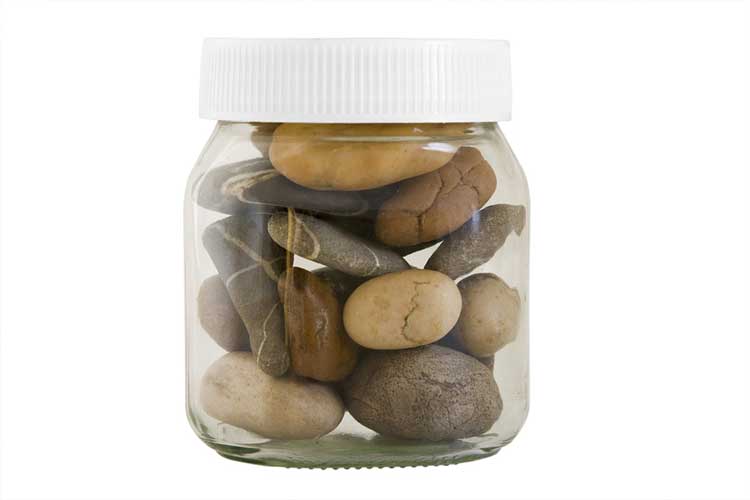Most of us know the story of the college professor and his jar of big rocks. It goes like this:
A teacher walks into a classroom and sets a glass jar on the table. He silently places 2-inch rocks in the jar until no more can fit. He asks the class if the jar is full and they agree it is. He says, “Really,” and pulls out a pile of small pebbles, adding them to the jar, shaking it slightly until they fill the spaces between the rocks. He asks again, “Is the jar full?” They agree.
So next, he adds a scoop of sand to the jar, filling the space between the pebbles and asks the question again. This time, the class is divided, some feeling that the jar is obviously full, but others are wary of another trick. So he grabs a pitcher of water and fills the jar to the brim, saying, “If this jar is your life, what does this experiment show you?” A bold student replies, “No matter how busy you think you are, you can always take on more.” “That is one view,” he replies.
Then he looks out at the class making eye contact with everyone, “The rocks represent the BIG things in your life – what you will value at the end of your life – your family, your partner, your health, fulfilling your hopes and dreams. The pebbles are the other things in your life that give it meaning, like your job, your house, your hobbies, your friendships. The sand and water represent the ‘small stuff’ that fills our time, like watching TV or running errands.” Looking out at the class again, he asks, “Can you see what would happen if I started with the sand or the pebbles?” 1
If the Professor started with the sand or the pebbles then that would mean his time (jar) would be filled with just the “little things”, leaving no room for the big things.
Being able to work on those areas in your life that are the most valuable and most important to you starts identifying your own set of “big rocks” to focus on. If we only spent time on the smallest or smaller things in life then we miss out on achieving and nurturing our dreams and aspirations. Laying out and setting major priorities leaves a productive division of time. Asking “Is this the most useful use of my time?” to reconnect with those bigger values ensures you are able to work on those areas.
References:
1 http://www.storlietelling.com/2013/08/07/rocks-pebbles-sand-a-story-bite-about-the-important-things-in-life/
Comments are closed.


